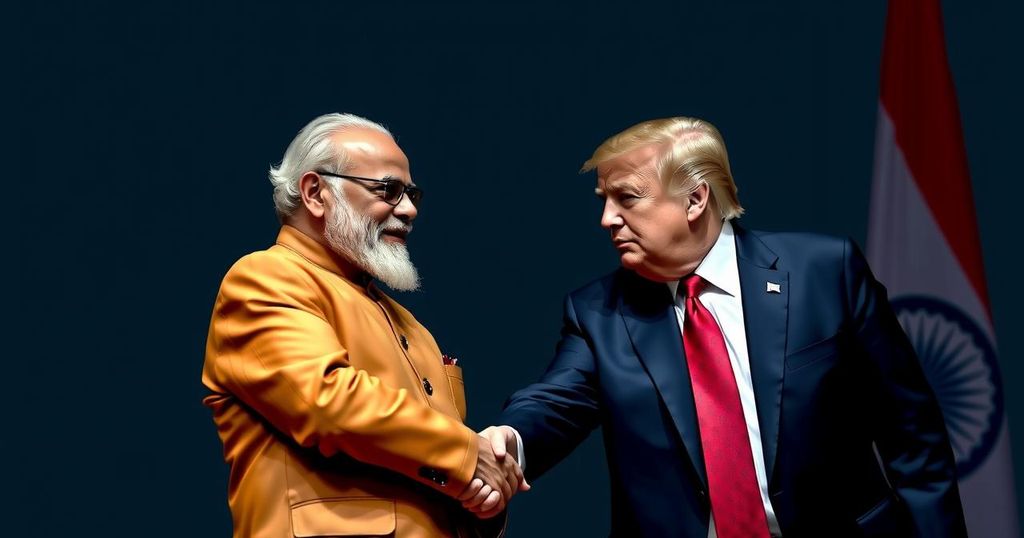Walter Mead Discusses India’s Role as a Strategic Partner for Trump
Walter Russell Mead posits that Donald Trump will likely embrace India as a strategic associate power, supporting stronger ties against the backdrop of competition with China. He suggests that India’s focus on technology provides a unique advantage in the evolving geopolitical landscape, while pointing to the need for India to have a voice in technological rule-making. Mead emphasizes the importance of maintaining robust economic relations, particularly concerning the tech sector.
Walter Russell Mead, a prominent American columnist and academic, expressed his views on the anticipated foreign policy approach of President-elect Donald Trump towards India during the 22nd Hindustan Times Leadership Summit. He suggested that Trump may favor India as an associate power within the context of ongoing tensions with China. Mead highlighted that while trade relations, especially regarding manufactured goods, might pose challenges, Trump’s protectionist policies are less likely to affect sectors like technology, which are central to the India-US economic partnership. Mead stated, “Trump will be supportive of the Quad, I think he’ll be very supportive of the relationship with India. India is not asking the US for military guarantees; India pays for its own defence budget.” He asserted that India’s emphasis on technology and cybersecurity over traditional manufacturing strengthens its position as a preferred partner. As countries like China build their technology systems, Mead underscored the importance of establishing an alternative “free world technosphere” involving allies such as the US, India, Israel, and European nations. Such collaboration would necessitate that India actively participate in the rule-making processes within this tech alliance. Mead also noted that India had effectively managed its relationship with Trump during his previous term by presenting a range of offerings to the US. He observed, “I think India has a shrewder idea of how to approach these kinds of negotiations.” Furthermore, he addressed the relevance of H1B visas, emphasizing their necessity for sustaining certain industries. In contemplating a potential agreement with China, Mead suggested that while Trump may entertain negotiations, the complexities involved in such discussions could be significant. He concluded by asserting that the evolving global landscape, marked by the rise of nations like India, is likely to transition towards a multipolar world characterized by competitive dynamics, rather than adversarial confrontations.
The discussion surrounding the relations between the United States and India has gained traction amidst shifting global power dynamics, particularly in the context of China’s influence. The role of India as a strategic partner for the United States is perceived as increasingly significant, especially under the leadership of Donald Trump, whose policies may diverge from previous administrations. The emphasis on technology and economic cooperation has prompted analysts to consider how Indian interests align with American objectives in the Indo-Pacific region.
In summary, Walter Russell Mead’s insights suggest that the United States under Donald Trump is likely to view India as a valuable associate power amid geopolitical rivalries, particularly with China. The emphasis on technology over traditional manufacturing sectors positions India favorably, while its proactive approach has previously fostered a strong bilateral relationship. The potential for cooperation in establishing a global technological framework may play a critical role in defining future relations between the two nations.
Original Source: www.hindustantimes.com








Post Comment